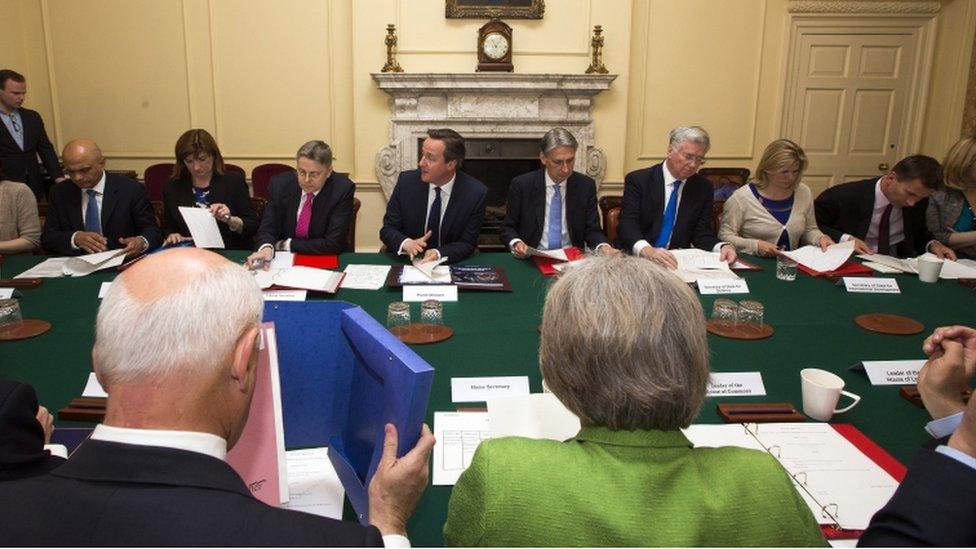EU summit: How did David Cameron end up here?
- Published
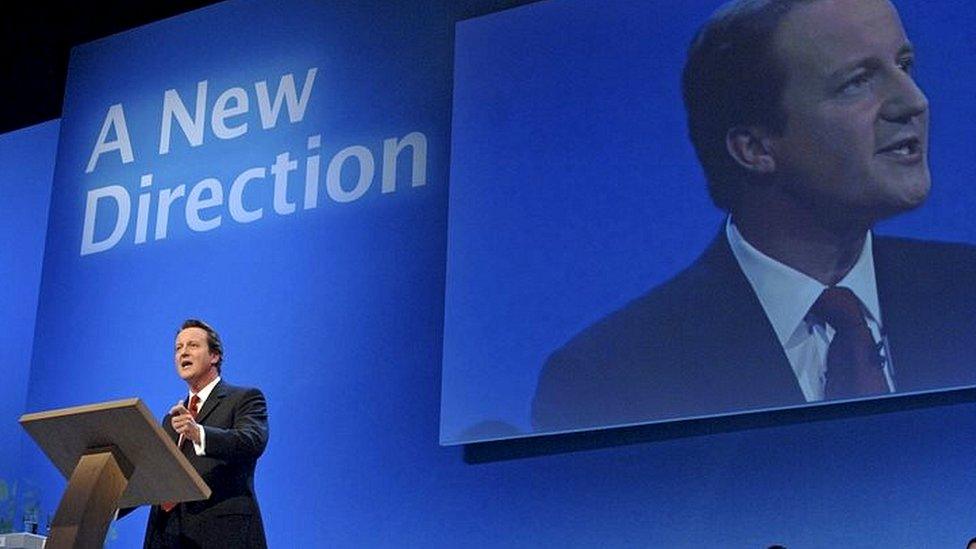
David Cameron has come a long way since 2006
It gets cold, very very cold, waiting at the entrance of the European Council building in Brussels.
You can spend several hours being jostled by French camera crews, squashed by Italian snappers, or shoved unceremoniously out of the way by any one of 27 other countries' journalists as the leaders of the European Union arrive one by one, and we frantically try to grab a word with them as they rush past.
There'll be sharp elbows in the press pen, craning of necks and stretching of microphones, as David Cameron arrives at this summit, which could define not just his leadership, but the future of his party and his country's place in the world.
But how on earth did the man who once accused the Conservatives of being out of touch for "banging on about Europe", get himself into a position where he has already been "banging on about Europe" for months and months, and will spend the next four months still doing precisely that?
Soft scepticism
Since he made that claim in his first season as party leader in 2006, appearing in front of a huge video screen tastefully projected with a giant tree, there have been three big changes, linked, that have got him to this juncture, which of course ultimately is a product of his own political calculation.
Most simply, as the years have passed, his party has changed.
Since the Maastricht rebels failed to get a public vote in 1993 on the treaty that created the modern version of the European Union, there has been a rump of Conservatives deeply passionate about the cause, significantly concerned that the EU's laws, not Britain's own, are more important - the question of sovereignty that's a big part of the current talks.
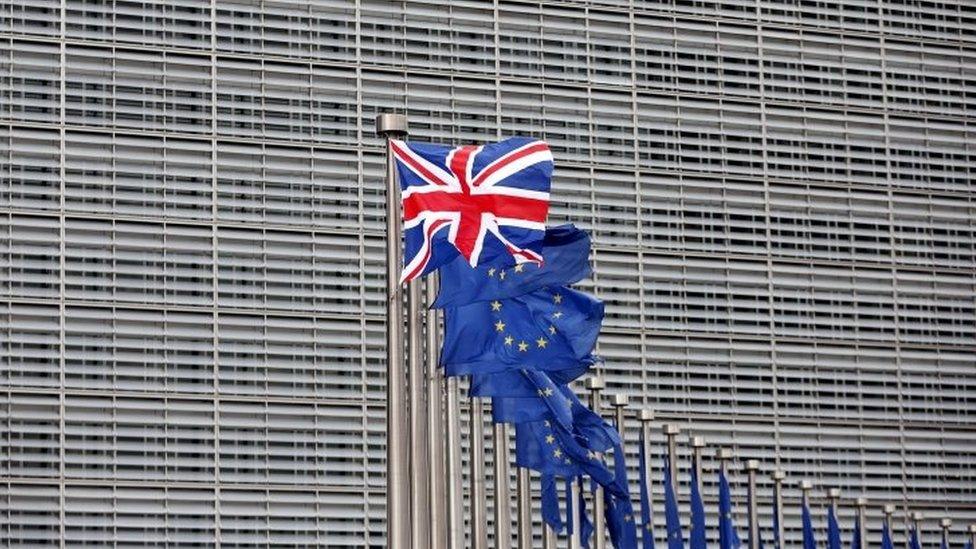
But their concerns, while shared by many Conservative Party members, were not considered mainstream in the parliamentary party - balanced, if not squeezed out, by heavyweight Europhile voices.
But as the EU expanded, and generations of MPs came and went, a soft scepticism towards the European project, neither full-throated support, nor hardcore opposition, became more common, and sympathy for the idea of a referendum spread from the margins.
The eurozone financial crisis, and the EU's stumbling approach to sorting it out, gave a fresh energy to eurosceptic MPs who wanted to campaign to leave.
In part that apathy, if not downright dislike, towards the EU spread because of the enormous rise in the numbers of people from around the Union who came to live and work in the UK.
Rise of UKIP
Numbers that took the political establishment completely by surprise began to arrive from the moment new countries like Poland joined the EU in 2004.
There is a complicated, and emotional debate about the impact of the numbers, but few can dispute that the effect has been very significant in some parts of the country, with figures this week showing the numbers still rising, standing at more than two million now.
For many people, that very visible impact of our membership of the EU has given them pause for thought.
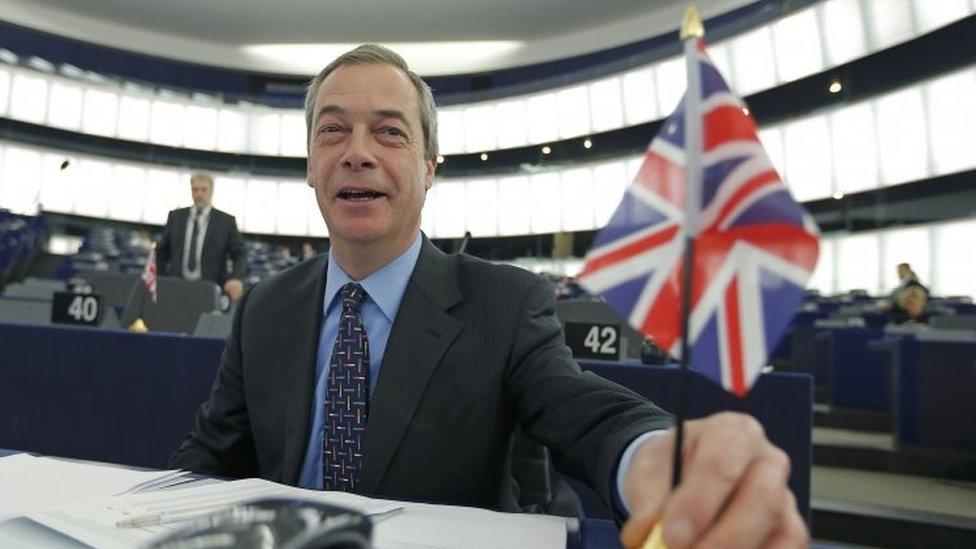
And it was that steep rise in EU immigration that gave David Cameron his most pressing political reason for - in the end - promising a referendum.
UKIP's appeal grew alongside the rise in immigration.
By 2012, they were greedily nibbling at the Conservative vote with a record performance in the local elections and a leader who in some moments seemed to appeal to swathes of the public for his plain speaking, in a style that also alienated many others.
Public concern
A drive to address the threat from UKIP and satisfy growing internal demands for the promise of a referendum led eventually to Mr Cameron's commitment in the 2013 speech to give the public a vote on whether to stay or go.
It's worth remembering that, perhaps strangely, the 2013 speech in which he made his promise to hold a vote made no mention of immigration.
But add a general election and increasing public concern to the mix and three years later, his hopes of limiting benefits for migrants are the centrepiece of his renegotiation.
The prime minister is not a politician who is known for getting hung up on the past, his seemingly bomb-proof - if maybe sometimes misplaced - confidence in his own abilities tends to lead him to look forward. He is not a prisoner of his record.
But as he arrives in Brussels on Thursday, and gets out of the shiny black limousine to sweep past the journalists clamouring to ask a question, will he consider even, for a moment, the irony that he may be risking it all for something he once more or less dismissed as a fringe concern?
- Published17 February 2016
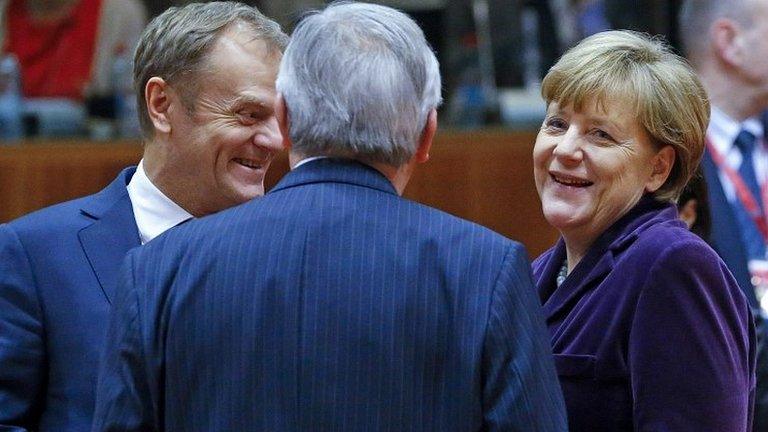
- Published15 February 2016
